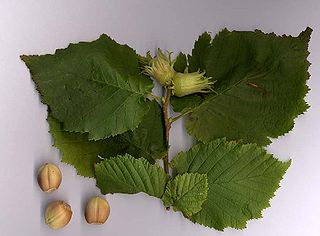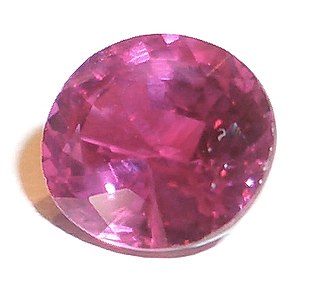 W
WThe name Basil comes from the male Greek name Vassilios, which first appeared during the Hellenistic period. It is derived from "basileus", a Greek word of pre-Hellenic origin meaning "king", "emperor" or "tzar", from which words such as basilica and basilisk as well as the eponymous herb basil derive, and the name of the Italian region Basilicata, which had been long under the rule of the Byzantine Emperor.
 W
WCharles is a masculine given name predominantly found in English and French speaking countries. It is from the French form Charles of the Proto-Germanic name *karilaz, whose meaning was "free man". The Old English descendant of this word was Ċearl or Ċeorl, as the name of King Cearl of Mercia, that disappeared after the Norman conquest of England.
 W
WChristopher is the English version of a Europe-wide name derived from the Greek name Χριστόφορος (Christóforos). The constituent parts are Χριστός (Christós), "Christ" or "Anointed", and φέρειν (férein), "bear": the "Christ-bearer".
 W
WDiamond is a feminine given name derived from the name of the diamond gemstone. The word is derived from the Greek adamas. The name was the 359th most popular name for baby girls born in the United States in 2007. Deimantė, a Lithuanian variant, was the 10th most popular name for baby girls born in Lithuania in 2007.
 W
WDorothy is a female given name. It comes from Greek Δωροθέα (Dōrothéa) meaning "God's Gift", from δῶρον (dōron), "gift" + θεός (theós), "god". Although much less common, there are also male equivalents in English such as "Dory" from the Greek masculine Δωρόθεος (Dōrótheos). Also, the given names Theodore and Theodora are derived from the same two Greek root words as Dorothy, albeit reversed in order. The name is variously abbreviated to "Dot", "Dotty" and "Doll".
 W
WEmory (\e-mo-ry\) is a masculine given name of old English and French origin, a variant of Emery. Emory is also an English language surname.
 W
WGabriel is a given name derived from the Hebrew name Gaḇrīʾēl (גַבְרִיאֵל) meaning "God is my strength" or "God is my (strong) man". The name was popularized by the association with the archangel Gabriel.
 W
WThe masculine first name Gregory derives from the Latin name "Gregorius", which came from the late Greek name "Γρηγόριος" (Grēgórios) meaning "watchful, alert". This traditional meaning may be disputed, however, as modern dictionaries translate Γρήγορε (Gregore) as “swift, quick,” while “watchful, alert” are translated as “προσεκτικός” or “άγρυπνος.”
 W
WHazel is a primarily female given name meaning "hazel", from the name of the tree or the color. It is derived from the Old English hæsel. It became a popular name in English-speaking countries during the late 19th and early 20th centuries, along with other names of plants or trees used for girls.
 W
WHeather is a common English speaking nation given name, for girls.
 W
WHenrietta is a feminine given name, derived from the male name Henry. The name is an English version of the French Henriette, a female form of Henri. A short version of the name is Harriet, which was considered the "spoken form" of Henrietta, much as Harry was considered the "spoken form" of Henry in medieval England.
 W
WIncrease is a male given name. It is the English language literal translation of the name Joseph, which originates from Hebrew.
 W
WIrene, sometimes written Irini, is derived from εἰρήνη, the Greek word for "peace". Eirene was the Greek goddess of peace. Irene was also the name of an 8th-century Byzantine empress, as well as the name of several saints.
 W
WJade is a given name derived from the ornamental stone jade, which is used in artwork and in jewellery-making. The name is derived from the Spanish piedra de la ijada, which means "stone of the colic." There was a belief that when jade was placed on the stomach, it could cure colic in babies. The stone is greatly valued in Asian countries. Confucius believed it had properties encouraging purity, bravery, and honesty. Chinese emperors were buried in suits made of the stone because they believed it would make them live on forever.
 W
WKate is a feminine given name. It is a short form of multiple feminine names, most notably Katherine but also Caitlin and others.
 W
WMiley is a feminine given name. It was the 278th most popular name given to baby girls born in the United States in 2007, the first year that the name or any of its variants appeared in the top 1,000 names given to baby girls, and rose to 128th in popularity in 2008, though it dropped back down to 189th place in 2009 and to 217th place in 2010. Its popularity is attributed to the fame of singer-songwriter and actress Miley Cyrus, whose name originated as a childhood nickname given to her by her father because she was so "smiley". Cyrus starred as Miley Stewart on the Disney Channel sitcom Hannah Montana.
 W
WNigel is an English masculine given name.
 W
WPoppy is a feminine given name derived from the name of the flower "poppy", derived from the Old English popæg and referring to various species of Papaver. The name is rising in popularity in the United Kingdom. It was the 13th most popular name given to baby girls in England and Wales in 2016 and was the 43rd most popular name given to baby girls in Scotland. The popularity of the name has been attributed to the naming of Poppy Honey, a daughter of British celebrity chef Jamie Oliver. Australian actress Poppy Montgomery and her sisters were named for the Flower Fairies illustrations by Cicely Mary Barker.
 W
WRebecca or Rebekah is a feminine given name originating from the Hebrew language. The name comes from the verb רבק (rbq), meaning "to tie firmly"; Jones' Dictionary of Old Testament Proper Names and the NOBS Study Bible Name List suggest the name means captivating beauty, or "to tie", "to bind". W. F. Albright held that it meant "soil, earth".
 W
WRoland is a masculine Frankish given name that is also used as a family name. Forms in other languages include: Orlando (Italian), Rolando, Roldán (Spanish).
 W
WRuby is a predominantly feminine given name taken from the name of the gemstone ruby. The name of the gemstone comes from the Latin ruber, meaning red. The ruby is the birthstone for the month of July.
 W
WRupert or Ruppert is an English truncation of Latin Rupertus, which derives from Old High German Hruodoperht/Hruodoberht ; which is also the source of the name Robert. Thus, "Rupert" and "Robert" are different modern forms of the same name. The Old High German form of the name evolved from Germanic Hrothi, "fame, glory" + Berht, "bright"; thus, Rupert and Robert mean "fame bright."
 W
WRuth is a common female given name noted from Ruth the eponymous heroine of the eighth book of the Old Testament.
 W
WTim is a masculine name, originally a short form of Timothy. It is a version of the Greek name Τιμόθεος (Timόtheos) meaning "honouring" (Τιμό) "God" (θεος). Tim is a common name in several countries.
 W
WTimmy is a masculine name, a short form of Timothy or Tim. This variation is popular as a nickname and is commonly used when someone is young, but is often used in adulthood. It is a version of the Greek name Τιμόθεος (Timόtheos) meaning "honouring" (Τιμό) "God" (θεος). Tim is a common name in several countries.
 W
WTimothy is a masculine name. It is a version of the Greek name Τιμόθεος (Timόtheos) meaning "honouring" (τιμάω) "God" (θεός). Timothy is a common name in several countries.
 W
WViolet is a unisex though usually female given name which comes from the eponymous flower. As with other such names, its popularity has varied dramatically over time. Flower names were commonly used from about 1880 through about 1910 in the United States, with usage dropping throughout the next 80 years or so; Violet was the 88th most frequent girls' given name in 1900, dropping below position 1000 by 1960. In 1990, the name appeared again in the top 1000 at position 289 and subsequently increased in popularity; it was the 69th most popular girls' name in 2013.